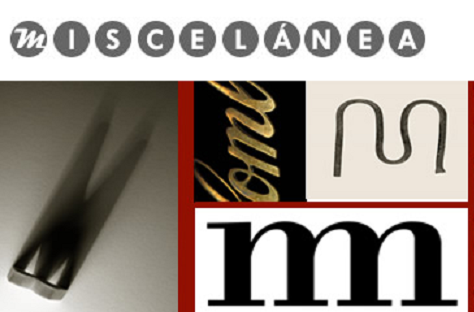Bacon, Essex y la disciplina
DOI:
https://doi.org/10.26754/ojs_misc/mj.199611046Resumen
Francis Bacon (1561-1626) fue el primer filósofo inglés en concebir y teorizar una reforma a fondo de las instituciones de enseñanza según un diseño utilitarista. Durante los años 1592-1601, Bacon ejerció de secretario del segundo lord de Essex, Robert Devereux, para quien también actuó como escritor fantasma y mentor. En este trabajo comparo las estrategias disciplinarias que Bacon diseña para, respectivamente, el estadista y el científico. Esta comparación fue impulsada por el uso que hace Bacon de las frases «médico bendito» y «censor despierto» para caracterizar su relación con Essex, y de «la medicina humana de la Mente» para caracterizar la preparación preliminar de la psique del científico.
Descargas
Citas
BACON, Francis. 1861. The Works of Francis Bacon. 15 vols. Ed. James Spedding, Robert Leslie Ellis, and Douglas Denon Heath. Boston: Brown.
- - -. 1861-74. The Letters and the Life of Francis Bacon Including All His Occasional Works. 7 vols. Ed. James Spedding. London: Longmans.
BOURDIEU, Pierre. 1991. Language and Symbolic Power. Trans. Gino Raymond and Matthew Adamson. Ed. John B. Thompson. Cambridge (MA): Harvard UP.
DEVEREUX, Walter Bourchier. 1853. Lives and Letters of the Devereux, Earls of Essex in the Reigns of Elizabeth, James I, and Charles I, 1540-1646. 2 vols. London: Murray.
FARRINGTON, Benjamin. 1961. Francis Bacon: Philosopher of Industrial Science. New York: Collier.
- - -. 1969. Francis Bacon: Pioneer of Planned Science. New York: Praeger.
- - -. 1966. The Philosophy of Francis Bacon: An Essay on Its Development from 1603 to 1609 with New Translations of Fundamental Texts. Chicago: U of Chicago P.
FISH, Stanley E. 1972. Self-Consuming Artifacts: The Experience of Seventeenth-Century Literature. Berkeley: U of California P.
FOUCAULT, Michel. 1984a. “The Means of Correct Training (from Discipline and Punish).” Trans. Alan Sheridan. In The Foucault Reader. Ed. Paul Rabinow. New York: Pantheon. 188-205.
- - -. 1984b. “The Subject and Power.” In Art After Modernism: Rethinking Representation. Ed. Brian Wallis. New York: New Museum of Contemporary Art. 417-432.
GREENBLATT, Stephen. 1980. Renaissance Self-Fashioning: From More to Shakespeare. Chicago: U of Chicago P.
HIBBERT, Christopher. 1991. The Virgin Queen: Elizabeth I, Genius of the Golden Age. Reading (MA): Addison-Wesley.
KINNEY, Arthur F. 1975. Elizabethan Backgrounds: Historical Documents of the Age of Elizabeth I, Newly Edited, with Introductions. Hamden (CT): Archon.
MCCOY, Richard C. 1989. The Rites of Knighthood: The Literature and Politics of Elizabethan Chivalry. Berkeley: U of California P.
MONTROSE, Louis Adrian. 1986. “The Elizabethan Subject and the Spenserian Text.” In Literary Theory / Renaissance Texts. Ed. Patricia Parker and David Quint. Baltimore: Johns Hopkins UP. 303-40.
RALEGH, Walter (Sir). 1972. Preface to The History of the World. In Selected Writings. Ed. Gerald Hammond. Harmondsworth: Penguin. 124-50.
RODRÍGUEZ GARCÍA, José María. 1996. “De Guyon a Greenblatt: travesías y moder-nismos de la cultura.” In Os estudios ingleses no contexto das novas ten-dencias. Ed. M. Teresa Caneda Cabrera and Javier Pérez Guerra. Vigo: Universidade de Vigo. 163-94.
SHAKESPEARE, William. 1954. Antony and Cleopatra. Ed. M. R. Ridley. Cambridge (MA): Harvard UP.
- - -. 1982. Hamlet. Ed. Harold Jenkins. London: Methuen.
SPENSER, Edmund. 1985. Books I and II of The Faerie Queene, “The Mutability Cantos,” and Selections from the Minor Poetry. Ed. Robert Kellogg and Oliver Steele. London: Collier Macmillan.
STARKEY, David, ed. 1990. Rivals in Power: Lives and Letters of the Great Tudor Dynasties. London: Macmillan.
Descargas
Publicado
Cómo citar
Número
Sección
Licencia
Derechos de autor 1996 José María Rodríguez García

Esta obra está bajo una licencia internacional Creative Commons Atribución-NoComercial 4.0.


